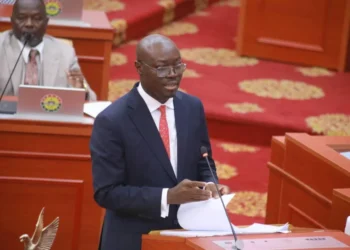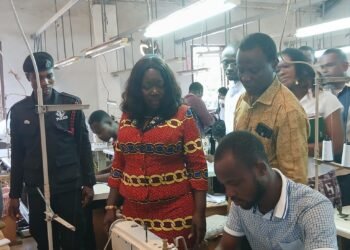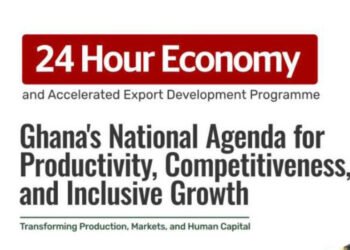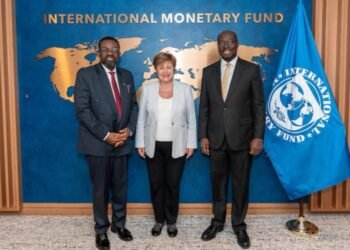The Director of Business Development Services of Association of Ghana Industries (AGI), Johnson Opoku-Boateng, is urging government to expedite developments leading to the creation of an industrial bank.
According to him, the establishment of an industrial bank will invariably help the Association address the challenges of access to funding its members face.
“As l speak to you, we are still struggling with banks identifying projects that l think they should be able to support AGI with. As l speak, still we have business banks that are stuck because still in terms of risk assessment and so on and so forth they are not ready to give that amount of money for industry to thrive so that is a major problem”.
With the African Continental Free Trade Area (AfCFTA) imminent, Mr. Opoku-Boateng reckons it as an opportunity to leverage on banks for businesses to upgrade and expand.
“What the government has already said in the past, AGI wanted to come out with an industrial bank, fortunately, the government has said that, this is one of the plans that they intend to, so we are expecting the government to put together the industrial bank and when it is an industrial bank obviously then the policy and idea behind that will be to support industry. We are also envisaging as time goes on with the AfCFTA coming up, the banks will take the opportunity to actually give money to industries to actually upgrade and expand and for those who are having very credible products to be able to start their production.”
The AGI Chair for Ashanti, Bono and Ahafo regions, Gyamfua Owusu Achaw, speaking in an interview earlier this year, suggested such initiative will boost industrial growth and as such, needs strong financial backing for sustainability.
“From the AGI point of view, we really, really want an industrial bank… when you go to China they have the construction bank, they have the industrial bank…they have all that, so we need an industrial bank which will be concentrating only on industries”.
Meanwhile, the Vice President of the Association in charge of small scale businesses, Hamphrey Ayim-Darke has called for a cut in the policy rate to a single digit, which he believes will enable SMEs compete fairly with their Sub-Saharan African counterparts when the African Continental Free Trade takes off in January next year.
“Building capacity is the most crucial issue. And therefore we urge the Governor [Dr. Ernest Addison] that regarding the financial reforms that had taken place recently, it is our wish to see the policy rate drop to a single digit so that we can compete fairly with our Francophone countries who are our neighbors. And that becomes the basis for cost of funding being reasonable for the SMEs to build on their capacity,” he noted.
“We probably need to have patience to allow the system to consolidate itself and expect interest rate to go down consequently. I say so because if you look at the profile of policy rate over the last three years, we have consistently gone down on the policy rate till January this year when we stooped at 14.5%, and there are reasons why they have stayed there.
“You’re looking at the impact of the shock and the impact of the shock especially on the government’s finances and the budget. And I think that as we go into 2021, when the fiscal challenges are sort of moderated, one can expect the monetary policy rate to respond to those improvements,” he stated.























